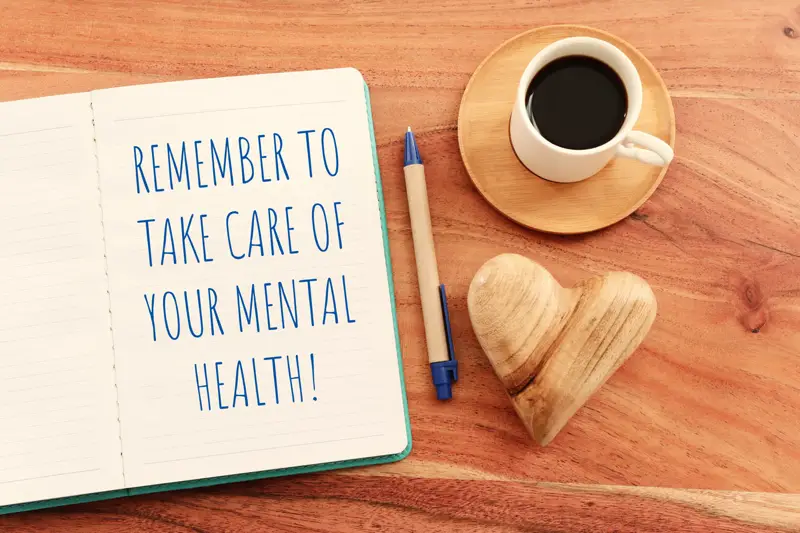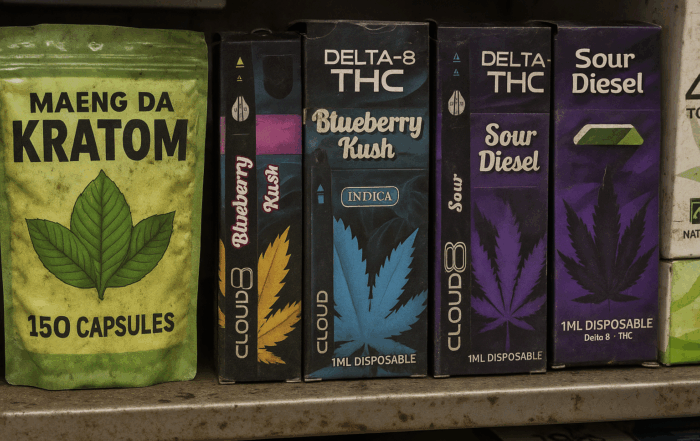Kratom Addiction and Recovery
Struggling with Kratom addiction? Dilworth Center in Charlotte, NC, offers specialized treatment for Kratom abuse. Learn more about our personalized recovery programs and start your journey to freedom.
Kratom, a plant-derived substance often used for pain relief or recreational purposes, has gained popularity in recent years. However, kratom addiction and its associated risks have raised concerns. While some users view it as a harmless alternative to opioids, Kratom can lead to dependency, withdrawal symptoms, and even serious health issues, such as kratom effects on the liver. If you’re struggling with Kratom use and wondering how to stop Kratom or manage Kratom withdrawal, Dilworth Center offers a comprehensive treatment approach designed to help you regain control and overcome this addiction.
Understanding Kratom Addiction
Kratom Effects on Humans
Kratom use can produce a range of effects on the human body, similar to both stimulants and opioids depending on the dosage. Users often report increased energy, focus, and euphoria in low doses, while higher doses can cause sedation and pain relief. However, prolonged use can lead to severe health issues, including dependency and addiction. Kratom effects on liver function are a growing concern, with some users developing liver damage over time. Additionally, chronic use may lead to kratom overdose, characterized by nausea, vomiting, confusion, and even seizures.

The History of Kratom Addiction
Kratom (Mitragyna speciosa) is a plant native to Southeast Asia, particularly in countries like Thailand, Indonesia, and Malaysia. For centuries, local populations have traditionally used it as a natural remedy for pain relief, energy enhancement, and to treat ailments such as diarrhea and cough. Workers in rural areas would chew the leaves or brew Kratom tea to help fight fatigue during long hours of labor. In its traditional setting, Kratom was seen as a medicinal plant, and its use was typically controlled and ritualistic, with fewer reports of widespread abuse.

Global Awareness of Kratom
However, as global awareness of Kratom grew in the 19th and 20th centuries, its use shifted from being a regional folk remedy to a substance consumed for its psychoactive effects. In Thailand, in particular, concerns over Kratom addiction began to surface as early as the 1940s. The Thai government eventually banned Kratom in 1943 due to growing concerns about its abuse, particularly as it began to be used as a substitute for opium when opium prices rose. This marked one of the first recorded instances of kratom addiction and government action to control its spread.
Rise of Kratom in the Western World
In the Western world, Kratom remained relatively obscure until the early 2000s, when it started gaining popularity in the U.S. as an over-the-counter herbal supplement. Many people began using Kratom as a natural alternative to opioids for pain relief or as a way to ease withdrawal symptoms from harder drugs, believing it to be a safer option. As its use increased, so did reports of kratom addiction, prompting more studies and warnings from medical professionals. By the 2010s, cases of kratom overdose and withdrawal became more common, with some users experiencing severe dependency and health issues, including kratom effects on the liver and other organs.

Modern Understanding of Kratom Health Impact
As regulatory bodies like the U.S. Food and Drug Administration (FDA) began to scrutinize Kratom, debates about its safety and addictive potential intensified. Despite claims by some that Kratom is a beneficial, natural remedy, medical professionals and researchers have highlighted its potential for abuse and addiction, particularly when used regularly or in high doses. This has led to growing concerns over how to manage kratom withdrawal and the broader public health impact of this once-obscure plant.
Today, as more people seek to quit kratom addiction and recognize the health risks associated with its use, treatment centers like Dilworth Center have begun offering specialized programs to help individuals overcome their dependency and regain control over their lives.

Symptoms of Kratom Addiction
The symptoms of Kratom addiction can resemble those seen in opioid dependence. Users may develop a tolerance, requiring increasing doses to achieve the same effects. Physical symptoms include weight loss, nausea, and sweating, while psychological symptoms involve cravings, anxiety, and mood swings. Additionally, those addicted to Kratom may experience Kratom withdrawal symptoms such as muscle aches, irritability, insomnia, and fatigue when they attempt to quit.
The Recovery Journey
Recovery is Possible
Overcoming kratom addiction is challenging, but with the right support, recovery is entirely possible. Our therapy programs address the underlying causes of addiction and provide the tools needed for long-term recovery. Through counseling, behavioral therapies, and ongoing support, you can break free from Kratom and live a healthier life.

Recovery Expectations
Recovery involves navigating both physical and psychological challenges. Understanding what to expect during each stage of recovery can help you and your loved ones prepare for the journey ahead. Here’s a detailed look at the recovery process, focusing on both physical and mental symptoms at each stage. While every individual may have slight variations of this process, this is a good overview of what to expect.

First 30 Days: Initial Adjustment (After Medical Detox)
During the first month of recovery, many people begin outpatient treatment at Dilworth Center after completing a medically supervised detox with one of our trusted medical partners. Early symptoms may include fatigue, irritability, and sleep changes, but with structured outpatient care, these challenges become more manageable over time.

Days 31-90: Building a Foundation for Kratom Recovery
As withdrawal symptoms lessen, individuals begin to focus on rebuilding their lives without Kratom. Therapy sessions at Dilworth Center help address the psychological aspects of addiction, equipping individuals with tools to manage cravings and stress.

Days 90-180: Strengthening Recovery Skills
By this stage, physical symptoms have typically subsided, but ongoing therapy is important for maintaining sobriety. Building a support network and developing healthy habits are key to preventing relapse.

Days 180-365: Achieving Long-Term Goals
As you approach your first year of recovery, your physical health should significantly improve. Maintaining a healthy lifestyle, including regular physical activity, a balanced diet, and sufficient rest, is crucial to sustaining your progress.
Beyond the First Year
After the first year of sobriety, individuals often find themselves focusing on personal growth and long-term goals. At this stage, it’s essential to maintain a strong support system, continue with therapy, and engage in activities that reinforce a healthy, drug-free lifestyle. Ongoing counseling at Dilworth Center and participation in support groups can help individuals stay committed to their recovery from Kratom addiction and continue to thrive.

Family Support for Kratom Addiction Recovery
Family Support
At Dilworth Center, we believe that family involvement is an essential part of the recovery process from kratom addiction. Addiction doesn’t just affect the individual—it impacts loved ones as well, often straining relationships and creating emotional turmoil. Our family support programs are designed to help families heal and support their loved ones’ recovery. By fostering open communication and understanding, we help rebuild trust and equip families with the tools to support long-term sobriety.


Understanding Kratom Addiction and Its Impact on Families
Kratom addiction can create significant stress and confusion within families. Many family members may not fully understand how a seemingly “natural” substance can lead to dependency, withdrawal symptoms, and health issues such as kratom effects on the liver. As their loved one’s kratom addiction progresses, families often witness mood swings, financial struggles, and social withdrawal, which can be emotionally draining. Feelings of frustration, helplessness, and guilt often arise as family members try to navigate the complexities of addiction. Without proper support, these emotions can lead to tension and fractured relationships within the household.
Involving the Family in the Recovery Process
At Dilworth Center, we emphasize the importance of family involvement throughout the recovery journey. Our programs offer family therapy sessions where loved ones can express their concerns, learn about the nature of addiction, and develop healthy ways to support their loved one. Involving the family in the recovery process ensures that everyone is working together toward the common goal of long-term sobriety. Through education, communication, and collaborative therapy, families become a key part of the recovery team, helping their loved ones stay accountable while also addressing their own emotional needs.

Dilworth Center Services
Recovering with Dilworth Center
At Dilworth Center, we provide a comprehensive approach to overcoming kratom addiction. Our personalized treatment programs are tailored to address both the physical and psychological aspects of dependency. Whether you are experiencing kratom withdrawal or navigating the difficulties of long-term recovery, our experienced team is here to support you every step of the way. Through a focus on therapy, education, and family support, we assist individuals in establishing lasting sobriety and regaining control of their lives.

Take the First Step Toward Lasting Kratom Recovery
Are you ready to overcome Kratom addiction? Our expert team at Dilworth Center is here to support you on your path to sobriety. Discover personalized treatment plans that empower long-term recovery. Don’t wait—reach out today and start your journey toward a healthier, Kratom-free life.

Dilworth Center Treatment Programs

Adult Intensive Outpatient Program (IOP) for Kratom Addiction
For individuals struggling with kratom addiction, Dilworth Center’s Adult Intensive Outpatient Program (IOP) provides a flexible yet comprehensive treatment option. Our intensive outpatient drug rehab is designed for those who need structured support but wish to maintain their daily responsibilities, such as work or family obligations. This intensive outpatient addiction treatment includes personalized therapy sessions, group counseling, and educational resources, all tailored to address the unique challenges of kratom dependency.
At Dilworth Center, we focus on treating both the physical and psychological aspects of addiction. Through our outpatient drug treatment program, individuals receive the tools they need to manage cravings, cope with withdrawal symptoms, and build a strong foundation for long-term recovery. Our experienced team works closely with each patient to develop a treatment plan that supports their recovery journey, ensuring they receive the care and guidance necessary to achieve lasting sobriety from kratom.

Young Adult Intensive Outpatient Program (IOP) for Kratom Addiction
For young adults facing kratom addiction, finding the right support is crucial to recovery. At Dilworth Center, our Young Adult Intensive Outpatient Program (IOP) is designed to meet the specific needs of individuals in this critical stage of life. As a nonprofit provider with more than 35 years serving Charlotte, Dilworth Center offers specialized outpatient programs for young adults in recovery.
Our rehab facilities for young adults provide personalized therapy, group sessions, and life skills training to help individuals overcome addiction and build a foundation for long-term success. We recognize that young adults often face unique pressures and challenges, and our program is tailored to address these specific concerns. Dilworth Center’s Young Adult IOP provides structured, evidence-based care with licensed professionals and strong family involvement.

Adolescent Intensive Outpatient Program (IOP) for Kratom Addiction
Teenagers facing kratom addiction require specialized care that considers both their developmental stage and the unique pressures of adolescence. At Dilworth Center, our Adolescent Intensive Outpatient Program (IOP) provides effective treatment in a structured environment that allows teens to continue their education and daily activities. As a nonprofit provider with more than 35 years serving Charlotte, Dilworth Center offers specialized outpatient programs for adolescents in recovery.
Our rehabilitation center for teens provides individualized therapy, group counseling, and family involvement to ensure each teen receives the support they need to recover. We also focus on educating families about addiction, providing tools to help them support their loved ones during recovery. Dilworth Center’s Adolescent IOP provides structured, evidence-based care with licensed professionals and strong family involvement.

Family Program for Kratom Addiction
At Dilworth Center, we understand that addiction affects not just the individual but the entire family. Our Family Program is designed to provide comprehensive family therapy for drug addiction, offering support and guidance to loved ones as they navigate the challenges of Kratom addiction. Addiction can strain relationships, create misunderstandings, and lead to emotional turmoil, which is why involving the family in the recovery process is essential for long-term success.
Through family addiction counseling, we help families understand the nature of Kratom addiction, how it impacts their loved one, and what they can do to provide effective support. Our program emphasizes open communication, education, and healing, enabling families to rebuild trust and work together toward recovery. Additionally, our family addiction support services offer ongoing resources to ensure families remain an integral part of the recovery journey, equipping them with tools to help their loved one maintain sobriety and avoid relapse.

Mental Health Program (Dual Diagnosis) for Kratom Addiction
Kratom addiction often coexists with underlying mental health conditions such as depression and anxiety, creating a complex situation that requires specialized treatment. At Dilworth Center, our Mental Health Program is designed to address both depression and substance use, providing an integrated approach to recovery. Individuals struggling with depression and addiction may turn to Kratom as a way to cope with emotional pain, but over time, this only exacerbates the problem.
Our program focuses on treating anxiety and addiction simultaneously, helping individuals manage their mental health without relying on substances like Kratom. Through a combination of therapy, medication management, and holistic support, we provide a comprehensive approach that addresses both the physical and psychological aspects of recovery. By treating both the addiction and mental health issues together, we help individuals build a foundation for long-term recovery and improved well-being.

Relapse Prevention Program for Kratom Addiction
Maintaining sobriety after overcoming Kratom addiction requires ongoing support and a solid strategy to prevent relapse. At Dilworth Center, we offer a comprehensive relapse prevention program designed to equip individuals with the tools and knowledge needed to stay on the path to recovery. Our relapse prevention plans are tailored to each individual’s unique triggers and challenges, ensuring they have a clear, personalized roadmap to avoid returning to Kratom use.
As part of our program, we teach effective relapse prevention strategies, such as identifying high-risk situations, developing healthy coping mechanisms, and building a strong support network. Through relapse prevention therapy, we help individuals build resilience, manage stress, and maintain their recovery long-term. At Dilworth Center, we are committed to helping you not just achieve sobriety, but sustain it for the future.














